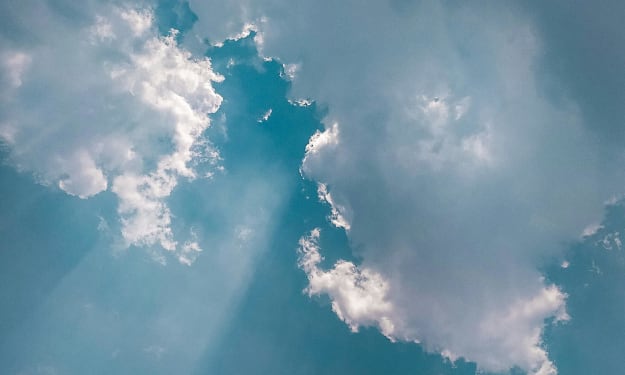What happens if there is no SUN?
Without Sun

If the Sun were to disappear suddenly, the consequences for Earth and its inhabitants would be profound and catastrophic. As the closest star to our planet, the Sun's radiant energy sustains all life as we know it. Its light and warmth provide the necessary conditions for the development and sustenance of living organisms, from the smallest microbes to complex ecosystems. However, the sudden absence of the Sun would plunge the Earth into darkness and cold, triggering a series of devastating events.
Firstly, despite the Sun's immediate disappearance, it would take approximately eight minutes for this information to reach Earth due to the distance light travels. During this brief period, Earth would continue its normal orbit around the spot where the Sun had been. However, after this delay, the Earth would begin to move in a straight line, leading to mass panic and confusion among the population.
The absence of sunlight would result in immediate darkness across the planet. Initially, those on the night side of Earth may not notice any change, but soon the Moon and other planets would disappear from view as they would have no sunlight to reflect. Distant stars would become the only source of light in the sky, providing limited visibility outside the planet.
The sudden loss of sunlight would have profound implications for life on Earth. Photosynthesis, the process by which plants convert solar energy into chemical energy, would cease. This would disrupt the entire food chain, as plants produce the oxygen essential for respiration. While existing oxygen levels would sustain human and animal life for a limited time, the long-term consequences would be dire.
Earth's temperature would rapidly plummet without the Sun's heat. Within the first week, the planet would cool significantly, reaching freezing temperatures within the first year. Oceans would begin to freeze over, forming a thick layer of ice on the surface. However, liquid water would persist at the ocean's depths, providing a potential refuge for certain organisms.
Despite the extreme cold, some organisms, particularly those living in deep-sea environments, may survive the absence of sunlight. These organisms rely on alternative energy sources, such as heat from hydrothermal vents, to sustain themselves. However, larger organisms, including humans, would struggle to survive in the frozen conditions.
Over time, Earth would become a frozen wasteland and of no use without sun, drifting through the universe devoid of life as we know it. While microbial life may persist in certain environments, the extinction of complex organisms, including humans, would be inevitable. Earth's icy surface would endure for billions of years until it eventually encounters a different star, potentially reigniting the conditions for life to emerge once again.
In the absence of the Sun's heat, Earth's temperature would quickly drop. Within just one week, the planet would experience significant cooling, and within a year, temperatures would plummet to freezing levels. As a result, the surface of the oceans would start to freeze, forming a thick layer of ice. Despite this, liquid water would continue to exist at the ocean's depths, potentially offering a sanctuary for select organisms.
In conclusion, the disappearance of the Sun would have catastrophic consequences for Earth and its inhabitants. Without sunlight, the planet would quickly freeze over, rendering it uninhabitable for complex life forms. While the microbial lives may persist in certain environments, the extinction of higher organisms, including humans, would be unavoidable. The loss of the Sun would mark the end of life as we know it on Earth, highlighting the critical importance of our star to the existence of all living organisms.





Comments
There are no comments for this story
Be the first to respond and start the conversation.